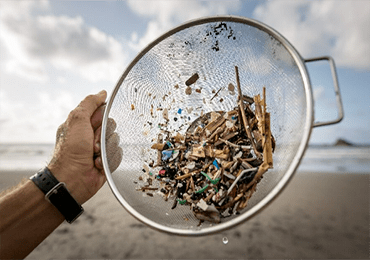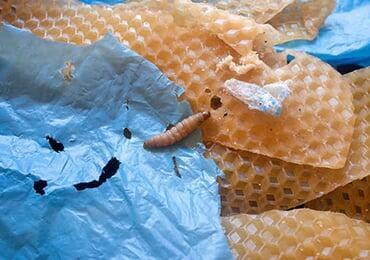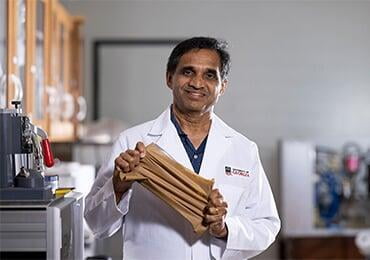
1. Study proves microplastics can be absorbed by cells
Numerous studies have proven that microplastics have entered various tissues in the human body, including the lungs and blood. Recently, a team of scientists from the Federal Institute for Risk Assessment in Germany proved that cells cultured in...

An independent team from the Autonomous University of Barcelona, Spain, and Aalborg University, Denmark, published a study in the journal Environmental Science and Technology on microplastics in the Mediterranean Sea, focusing on how they sink to the seafloor and what happens to them once they do. T...

The European Commission is working on a new soil health law, and the European Bioplastics Association lobbied for compostable plastics to be taken into account.
The European Commission (EC) is currently working on a new EU soil health law that aims to clarify the conditions for soil health and soil...

This paper briefly introduces two types of bio-based plastics: non-biodegradable bio-based plastics such as bio-based PE, bio-based PP, bio-based PET and degradable bio-based plastics such as starch-based degradable plastics, PLA, PHA, summarizes their cases in the packaging industries of cosmetics,...

PLA is a bio-based biodegradable plastic. Poly Lactic Acid (PLA) or Polylactide is a polymeric polyester type material obtained by polymerizing lactic acid or lactic acid dimer propylene glycol as monomer, which is a synthetic polymer material with bio-based and degradable characteristics. Sinc...

In 2020, each person in the EU generates an average of 34.6 kg of plastic packaging waste. Of this, 13.0 kg is recycled. This information comes from packaging waste data published by Eurostat.
Between 2010 and 2020, the amount of plastic packaging waste generated per inhabitant in the EU increa...

Recently, Wageningen scientists have developed a sustainable asphalt component from the biomass resource lignin. It has been tested on bicycle paths and provincial roads and has proven to be a high-quality material. In addition, this bio-asphalt significantly reduces CO2 emissions.
Replacin...

Scientists have determined that enzymes in wax worm saliva can degrade plastic bags in a matter of hours.
Scientists in Spain have discovered that wax worms have the ability to degrade plastic bags in a matter of hours at room temperature. This could be an advance in the global fight against pl...

A group of scientists at the Texas A&M Agricultural Research Institute (University of Texas Station, USA) has developed a system for producing biodegradable plastics or bioplastics from carbon dioxide (CO2) that could replace the non-biodegradable plastics currently in use.
This research ad...

Since the 21st century, the development and utilization of biomass materials have been gradually gaining attention in the world. The shortage of forest resources necessitates the expansion of horizons to include crop stalks, bamboo and wild plant stalks. Biomass refers to natural polymers that ...